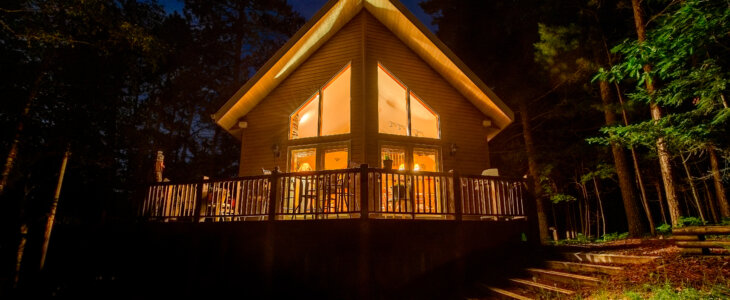Gifting your cabin in Wisconsin during your lifetime is a generous act that can reduce the value of your estate for estate tax purposes. However, before you gift a cabin to someone, you must consider other tax implications associated with gifts. In this blog, our Madison & Dane estate planning attorneys explain the tax implications of gifting a cabin in Wisconsin.
State and Federal Gift Tax Exclusions
Wisconsin does not have a state gift tax, but gifting a cabin will trigger federal gift taxes. The federal gift tax applies to the transfer of property for no value or less than the full value of the asset. Generally, gifts to spouses are not subject to the gift tax.
When you give your cabin to your child, grandchild, or another person, you are required to file a gift tax return if the value of the property exceeds the annual exclusion amount. For 2024, the annual exclusion was $18,000. The amount is adjusted annually for inflation.
Even though you must file a gift tax return, you may not need to pay the gift tax. The value of the cabin goes against your lifetime gift and estate tax exemption, which is $13.99 million per individual for 2025. You can gift up to this amount during your lifetime without incurring gift tax. Therefore, you may give your cabin to someone without incurring gift tax unless the value of the cabin is over the lifetime exemption.
Other Tax Implications When Gifting a Cabin in Wisconsin
Even though you might not be required to pay the federal gift tax, other tax implications should be considered. For instance, when you gift a cabin to someone, their basis in the property is the same as your basis. Therefore, if you pay $300,000 for the cabin, your basis is $300,000, which carries over to the recipient.
When the recipient sells the cabin, they will owe capital gains taxes on the difference between the sales price and their basis. If the cabin increases in value, the recipient could owe a substantial amount of taxes if they sell the cabin.
However, if someone inherits your cabin, they receive a stepped-up basis. Generally, the basis is the fair market value at the time of your death. Therefore, if they sell the cabin for the fair market value, they would not owe capital gains tax. Furthermore, inherited property is considered long-term for capital gains purposes, which is subject to a more favorable tax rate.
An attorney can help you evaluate different options for gifting your cabin in Wisconsin. Each situation is unique, so what is best for your situation may differ. For example, it may be better to place the cabin in a trust with the person named as the beneficiary. The trust protects the cabin from creditors, avoids probate, and steps up the basis at the time of your death to minimize capital gains taxes.
Schedule a Consultation with Our Madison & Dane County Estate Planning Attorneys
Our Madison & Dane County estate planning lawyers at Borakove Osman LLC can help you develop an estate plan that minimizes tax implications yet accomplishes your wishes. Contact our office to schedule a consultation with an attorney. A comprehensive estate plan protects your property and your loved ones.

